I made a habit of sharing my top ten crime fiction reads of the year over at my former blog, and I want to carry on the tradition. But first, I’m going to mention some other books that left an impression.
First, three non-fiction works that I keep urging on everyone.
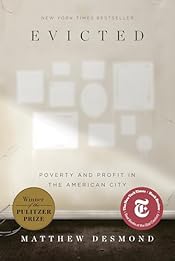 Matthew Desmond / EVICTED: POVERTY AND
Matthew Desmond / EVICTED: POVERTY AND
I am not sure what impressed me the most about this book: the extraordinarily deep and respectful research into the lives of people that includes ethnographic and quantitative methods, the power of the narrative about these people, or what I learned about the complexity of daily life when the rent’s too damn high. All three, really. It’s incredibly moving, informative, and in a year of great disappointment, profoundly decent. I hope it’s widely read and creates the momentum for change, though that’s a difficult hope to hold onto, given we just elected a rapacious racist property developer as president and Tweeter-in-Chief.

Cathy O’Neil / WEAPONS OF MATH DESTRUCTION: HOW BIG DATA INCREASES INEQUALITY AND THREATENS DEMOCRACY
The author doesn’t have to convince me that our increasing infatuation with Big Data – the capacity to gather and analyze data at a speed and scale that changes how we use numbers – has significant drawbacks. But she illuminated for me the many areas in which Big Data is changing everything from scheduling fast food workers to deciding how long people will be sentenced to prison. In all of these cases, existing applications embed our biases in code and hide them in a black box. The author is a data scientists who is able to explain issues clearly and colloquially. It’s a fast, fun read about a worrying subject.
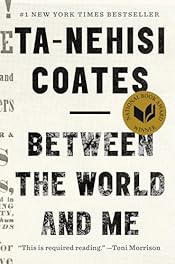
Ta-Nehisi Coates / BETWEEN THE WORLD AND ME
This book has been so widely read it seems superfluous to say anything about it. For a very short book, it took me a long time to read it; it’s like drinking whiskey straight when you’re not used to it. Coates dynamites the exceptionalism that even well-educated white Americans have internalized, giving us instead an understanding a history that’s based on violence and profound injustice. He doesn’t let us off, easy, either, with a message of hope in the end. The only thing he offers us is that we can live with our eyes open.
I don’t read much general fiction, but here are two books that endure in my memory.

Chimamanda Ngozi Adiche / AMERICANAH
Yes, I’m late to this party, but glad I came. I particularly enjoyed seeing both Nigeria and America from the perspective of a young woman who travels abroad and is nearly as surprised as Americans unfamiliar with Nigeria are reading the scenes set there. The protagonist has sharp observations about race and gender and immigration, but it’s also a surprisingly light-hearted love story.

Colson Whitehead / THE UNDERGROUND RAILROAD
The violence in this book is difficult to read, but it’s entirely necessary because the subject is slavery and the experiences of the protagonist are those parts of our bloody history that Texas textbook boards and white nationalists want erased. Whitehead imagines the past using a childhood misunderstanding: that the underground railroad was a genuine railroad that ran underground. It sounds like a silly conceit but it works. As our heroine escapes and finds her way to the train, she travels through times and places where brutality is more or less hidden, but always there. Her mother’s story in particular is heartbreaking and haunting.
A couple of science fiction titles I enjoyed . . .

Octavia Butler / KINDRED
Why did it take me so long to read Butler? Well, I’m not very up to speed on the science fiction genre, but that’s no excuse. It’s a memorable book that, like Whitehead’s, is often extremely painful to read. Slavery was an ugly business. In this novel a 20th-century woman is swept back in time to a plantation where she has to adjust to life as a slave as she saves the life of the slave owner’s son multiple times; he’s destined to become her ancestor. She has a white boyfriend in the present who also gets involved in her trips back to her past. Fascinating and thought-provoking.
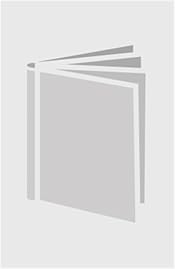
Paolo Bacigalupi / SHIP BREAKER
Like so much of YA these days, this book takes us to a dystopian future where children have to triumph over the odds. But hey, it’s not a trilogy and it’s very good. Nailer lives along the Gulf coast, salvaging the innards of wrecked ships while newer clipper ships sail overhead. He comes across a crashed clipper with one survivor. He could strip the ship and score a small fortune or help the girl. The landscape of a drowned coast is vividly described by an author who knows enough about climate change to imagine what it might lead to.
And finally, my top ten crime fiction reads of 2016. This is the genre I read the most – around 65 mystery/thrillers read this year, slimmer than usual. I’ve been trying to attend to gender and race a bit more in my choices than in the past, with some success. Six of the ten are by women, three by authors of color.
 Lauren Beukes / ZOO CITY
Lauren Beukes / ZOO CITY
This wildly imaginative SF/crime fiction crossover set in Johannesburg at a time when people who’ve committed crimes are mysteriously saddled with an animal, which sets them apart as a class (the animalled have to live in their own ghetto and have trouble scraping together a living outside proper society). Our heroine is a kind of detective because she has a strange talent for finding lost things – and intuiting what things people have lost. It’s weird and brilliant and utterly original – with beautiful writing, as usual from Beukes.
 Lisa Brackmann / GO-BETWEEN
Lisa Brackmann / GO-BETWEEN
Brackmann’s previous novels were all set in exotic locations, most memorably her China trilogy, but this book, set in northern California, Houston, and L.A., may be her best yet. A woman, living under an assumed name, gets in a crack and has to follow a shady CIA operative’s orders to babysit the founder of a foundation that’s being used to promote pro-prison legislation. Brackmann takes the noir formula – things start out badly for a hapless hero and keep getting worse – and gives it a feminist reboot. Michelle/Emily is a character who is put in an impossible situation with nothing but her intelligence, survival instincts, and a moral compass to show her the way. With her as a guide, accompanied by a cast of well-drawn characters, it’s a fun, smart, and fascinating trip. Full review.
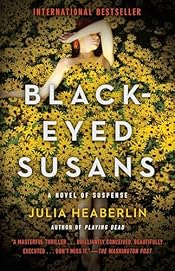
Julia Heaberlin / BLACK-EYED SUSANS
It’s hard to describe this book. It’s a fairy tale for grownups who are willing to explore just how creepy those children’s stories really are. Or it’s gothic suspense. It’s psychological drama. It’s another thriller that’s twisty enough that it could have had the word Girl in the title. It’s a courtroom drama with a loudly ticking clock. Whatever it is, it’s best categorized as “a really fine novel.” Though much of the plot seems familiar and kind of silly, the writing and characterization rescue it from same-old same-old. Full review.
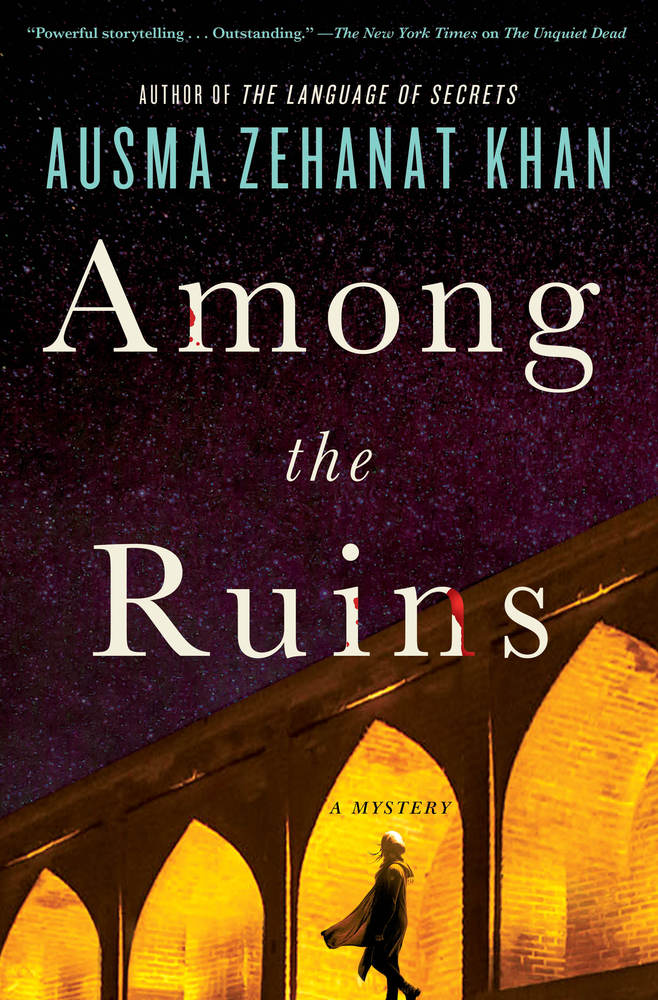 Ausma Zehanat Khan / AMONG THE RUINS
Ausma Zehanat Khan / AMONG THE RUINS
In the third volume of the Esa Khattak and Rachel Getty series, author Ausma Zehanat Khan once again explores current and past events that have shaped Canada’s pluralistic society. Esa Khattak, originally from Afghanistan, has left Canada and his job with the police to search for peace in Iran, where he wants to explore the beauties of the country as a tourist. But a strange letter has been delivered to his guest house door, one that promises he will soon have a story to tell – and advises him to hide the letter or risk great danger. Each chapter begins with one of these letter, told from the perspective of an imprisoned and tortured dissident. As Khan is drawn into the search for a missing dissident filmmaker, he gets to know the state violence lurking beneath the surface – and the courage of those who resist.
 Ed Lin / INCENSED
Ed Lin / INCENSED
This is a funny, sweet, memorable mystery set in Taiwan. Jing-nan, who runs a food stall in Taipei’s night market, is ordered by his gangster uncle to look after his 16-year-0ld cousin, who has no intention of being kept safe. Yes, things go wrong, and adventures ensue, but the droll voice of our hero and the unusual settings are worth the price of admission. Just be prepared for the scrumptious food descriptions to make you very hungry.
 Laura Lippman / WILDE LAKE
Laura Lippman / WILDE LAKE
Lippman is a fine novelist who frequently writes about the complexity of teenage friendships, the reverberations of crime, and her beloved home, Baltimore. Her latest stand-alone novel involves all three, though rather than using an urban setting, she sets her story in Columbia, Maryland, a utopian “new city” built in the late 1960s as an idealistic suburb between Baltimore and Washington DC. Lippman captures both the optimism that drove the urban exodus and its false front of harmony and wholesomeness, a dichotomy of surfaces and submerged, murky reality that runs throughout the book. Full review.
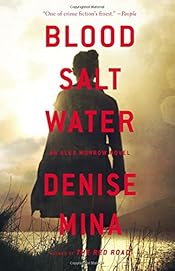 Denise Mina / BLOOD, SALT, WATER
Denise Mina / BLOOD, SALT, WATER
I can’t explain what it is that so seduces me in Denise Mina’s books. It’s something about the voice of her books – a hint of humor, a touch of kindness, a fair amount of prickliness, all with a Scottish accent. She has a way of making hopelessly awful people very human. Also, her heroic people very realistically imperfect. This is the fifth book in the Alex Morrow series, and I’ve adored every one. That said, I would very much like to see her Paddy Mehan series completed some day.
 Thomas Mullen / DARKTOWN
Thomas Mullen / DARKTOWN
In 1948, the mayor of Atlanta decide to hire eight “Negro” police officers to patrol the black neighborhoods. They were expected to maintain order and were authorized to wear a sidearm and give out tickets, but couldn’t make arrests or investigate crimes. Thomas Mullen uses this historical moment to remind us of our past in an effective and engrossing police procedural. Two black officers feel compelled to investigate the murder of a woman who they last saw in a white man’s car, but they are thwarted by resentful white police. At times, the day-to-day experience of blacks and whites living in the Jim Crow south seen through this fictional lens seems like bulletins from a distant past, something long gone and half-forgotten, shocking in its strangeness. At other times it reads like tomorrow’s headlines. Full review.
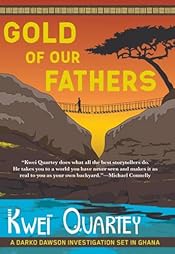 Kwei Quartey / GOLD OF OUR FATHERS
Kwei Quartey / GOLD OF OUR FATHERS
It’s not good news for Darko Dawson, recently promoted to Chief Inspector in the Accra police force, when he’s reassigned to Obuasi. Uprooting his family to spend a year in a remote part of the country is an unwelcome development, but a decision has been made by someone high up in the government. The police station is in disarray, with the records of incomplete criminal investigations scattered around the office and staff unused to following regulations. But there’s no time to settle in. A Chinese immigrant has been found buried in his own gold mine. These mines, many run by Chinese entrepreneurs, are destroying the local land and water and bring both cash and conflict to the community. Quartey provides readers with a realistic view of contemporary Ghana through the eyes of an appealing hero in a mystery that involves the problems of globalization, colonialism, and environmental issues. Full review.
 Ben Winters / UNDERGROUND AIRLINES
Ben Winters / UNDERGROUND AIRLINES
In the month this book was published, the wife of the American president said something no first lady has ever acknowledged. In a speech watched by millions she told the nation she wakes up every morning in a house built by slaves. This is an aspect of modern-day America that most Americans either don’t know or have managed to forget. Ben Winters wants us to think about our past in his new alternative history in which a modern-day invisible man tracks down fugitive slaves in a nation that never fought a civil war or abandoned the Peculiar Institution. Victor is one of those hard-bitten noir detectives who reflects on the darkness in the world he inhabits. Victor’s good at his job – locating “people bound to labor” in the bureaucratic language of this alternate America who have escaped from one of the four southern states that saw their entitlement to own human beings inscribed in irrevocable amendments to the US Constitution. He also hates himself for doing his job so well, though we come to learn how little choice he really has as he pursues a mysterious refugee named Jackdaw. That pursuit takes him into the “freed man towns” of the north and across the border into the “hard four” where plantations have been replaced by corporations. A disturbing, imaginative, and thought-provoking novel that ties our heritage of slavery to inequality today. Full review.